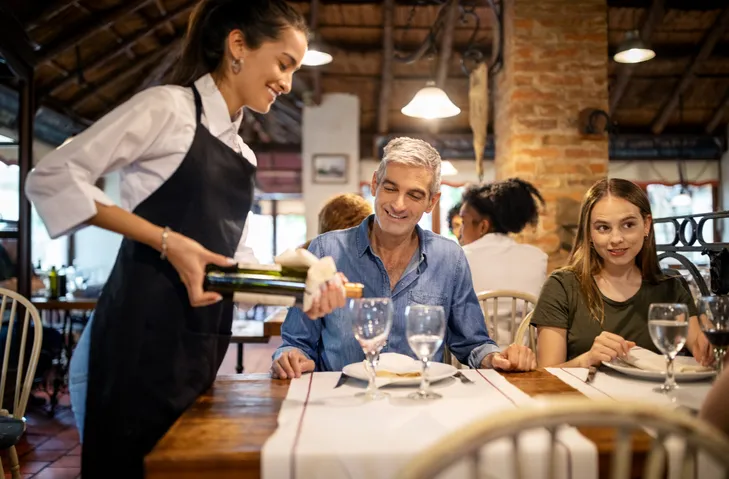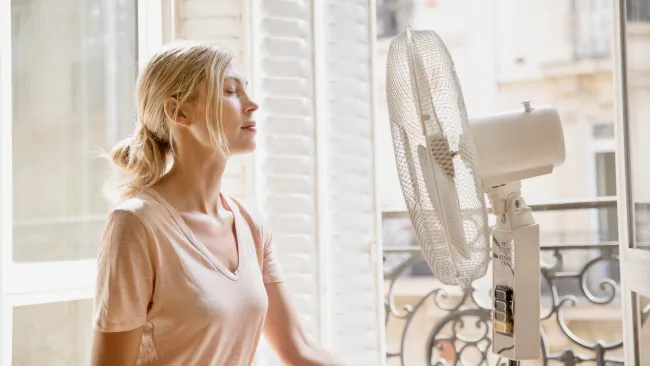
With the Paris Olympics in full swing, France is even more popular among British tourists than usual.
If you’re heading across the Channel this summer, you’ve likely been brushing up on your parle français is order to fit in with the locals.
But there are a few common French phrases native English-speakers often get wrong – and doing so could leave you pretty red-faced.
Think of all the idioms we use that confuse UK tourists relying on Google Translate; raining cats and dogs, break a leg, or piece of cake to name a few. Much to the bewilderment of visitors, we also say sorry in numerous different contexts and use ‘hello’ and ‘alright’ synonymously.
All this to say, translation isn’t simple, and this is the case when it comes to the French language too.
So to spare your blushes when you’re giving Gallic a go, City Lit’s head of school culture and communication, Claudio Guastiare, has shared the phrases to avoid.
Accidental pregnancy announcements
Literally translated, ‘je suis plein(e)’ means ‘I am full’, so you may be tempted to say it to show your waiter or host gratitude after a meal.
In colloquial terms though, it tends to mean ‘I am drunk’, and can even be interpreted as ‘I am pregnant’.
‘Instead, you should say “J’ai bien mangé” (I ate well) or “Je n’ai plus faim” (I am not hungry anymore),’ explains Claudio.
For an extra flourish, adding ‘c’était délicieux’ to the end of the sentence, ‘not only avoids confusion but also shows appreciation for the food.’

Outdated titles
It’s considered disrespectful to use the wrong titles when addressing people; mademoiselle, for example, is inappropriate when referring to an adult woman.
Claudio says: ‘When unsure, defaulting to “Madame” and “Monsieur” ensures politeness. For example, upon entering a store, you might say, “Bonjour Madame” to a female staff member or “Bonjour Monsieur” to a male staff member.’
Overfamiliarity with strangers
If you did French at school, you were probably taught to start a conversation with ‘Comment ça va?’. But what your teacher may have failed to mention is the fact that this is considered too informal when talking to a stranger.
Claudio recommends a polite ‘Bonjour’ or ‘Bonsoir’ as a greeting instead, adding: ‘Only use “Comment ça va?” if you have established a rapport with the person, like when chatting with a friend you’ve met a few times.’
Similarly, the second-person pronoun ‘tu’ (which means ‘you’) should be reserved for friends, family, and people your age in informal settings.
‘”Vous” is the default polite form, used in most interactions with strangers, professionals, or older individuals., says Claudio, ‘For instance, when asking for directions, say, “Excusez-moi, pouvez-vous m’aider?” (Excuse me, can you help me?).’
Impolite questions
‘While “Excusez-moi, où est la toilette?” (Excuse me, where is the toilet?) is not incorrect, it’s more polite to say, “Où sont les toilettes, s’il vous plaît?” (Where are the toilets, please?),’ says Claudio.
Don’t forget to add please to the end of a question – as you’d (hopefully) do in English – as a polite request is more likely to prompt a helpful response.
Your Daily Horoscope
-

Daily horoscope today: August 5, 2024 astrological predictions for your star sign
Not to mention, it’s nice to be nice, wherever in the world you are. Bonne chance!
Do you have a story to share?
Get in touch by emailing MetroLifestyleTeam@Metro.co.uk.

Get need-to-know travel news, inspiration and advice from Metro every week.
Sign up here...
Privacy Policy
Disclaimer: The copyright of this article belongs to the original author. Reposting this article is solely for the purpose of information dissemination and does not constitute any investment advice. If there is any infringement, please contact us immediately. We will make corrections or deletions as necessary. Thank you.





